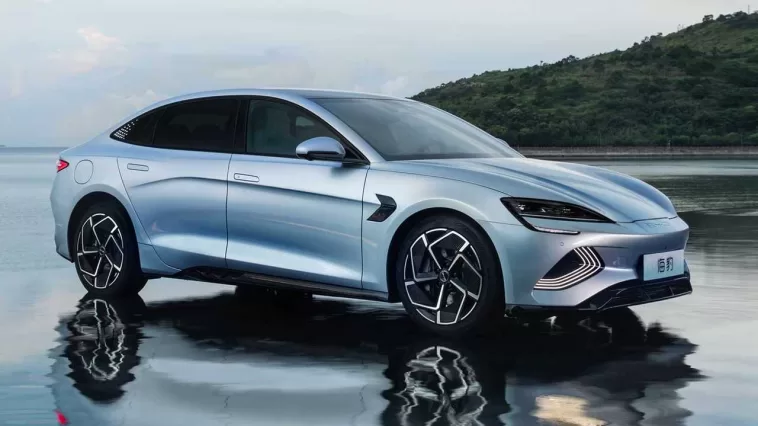When it comes to the global sales of exported vehicles, Germany is in the lead, with Japan in second place. After that, came the United States, Mexico, and, in fifth place, Canada. This would lead anyone to believe that Japanese EVs would be among those most highly exported and sold globally as well. However, this isn’t the case at all and until quite recently, Japanese electric vehicles didn’t even rank among the top ten exported makes, only narrowly edging out Canada for that coveted 10th place last year.
This begs the question, why is this when Japanese vehicles, overall, are second in global sales only to Germany? The answer to that is almost as complicated as it is simple. Here’s what we know so far.
The Approach to the Reduction in Carbon Emissions

To understand the difference in how each country is approaching Net Zero carbon emissions, let us compare two of the world’s leading economies. Considering two top five global economies that are the UK and Japan, these two countries do have differences in their style of Net Zero. For several years now, the UK has targeted 2050 as the date to reach Net Zero while Japan only recently joined the growing list of world economies to target that year as well. It was only in 2021 that the Prime Minister of Japan announced that country’s intent on Net Zero by 2050 and their approach is much more conservative than that of the UK as well.
While the UK is working toward 2030 as a date in which no new petrol cars can be sold in the country, Japan is taking a more conservative approach as mentioned above. Instead of eliminating the sales of petrol and diesel vehicles, they are promoting hybrids which they consider to be much more realistic in terms of transition. With that said, however, they are also keenly aware of a drop in global revenue due to other nations designing and selling a greater number of electric vehicles.
Further Evidence of the Difference in Approaches
Another visible difference is in just how many electric car charging ports have been set up in recent years throughout the UK. Since we are comparing the UK as the fifth leading global economy with Japan in third place, you will see why it doesn’t seem logical that Japanese exports of EVs are so far behind those of Germany and the U.S.
In fact, charging an electric car in the UK is no longer much of an issue since new public charging ports are cropping up almost daily. You can read this guidance on charging your electric car in the UK to see just how many public charging ports there are already in service. With a focus on eliminating the sale of petrol and diesel vehicles within the next decade and a growing number of charging stations being built, the focus is totally different. Where the UK wants to eliminate carbon emissions from vehicles within the next few years, Japan is still taking a conservative approach by focusing on hybrids that will still burn petrol (or diesel).
Japan Is Rounding the Corner
With all of that being said, the one thing which is becoming more and more evident is that Japan is seeking to significantly increase global exports by ramping up the design and manufacturing of EVs to be competitive in today’s market. Yes, Germany is in first place at the moment, but let’s not forget that Nissan was one of the early leaders in the sales of EVs more than a decade ago. At that time, the Nissan Leaf made its grand appearance on the global market as a state-of-the-art EV and has since continued to be one of their leading exports within the electric car market.
In recent years, other leading Japanese manufacturers have been working toward gaining a foothold in the market as well. Consider the fact that Japan has at least five other leading global vehicle manufacturers that are gaining steam in the production of EVs. When these brands ramp up production of electric cars, Japan will probably gain a significant foothold in the global sales of EVs. Japanese manufacturers to keep a watch on include:
- Mitsubishi
- Subaru
- Toyota
- Mazda
- Honda
Then, with Nissan also a close global contender, Japan may then own the market on the global export of EVs.
Is a brighter future on the horizon for Japan in terms of automobile exports? There was a time when Japan held the coveted number one spot not too many decades ago. With their newly gained focus on the reduction of carbon emissions and Net Zero by 2050, this island nation in the Pacific is one to watch. With each new car year, you can expect to see new innovations in EV technology coming out of Japan. They may be lagging in working toward Net Zero, but if there is one thing Japan knows, that would be how to corner the market on new car sales.




